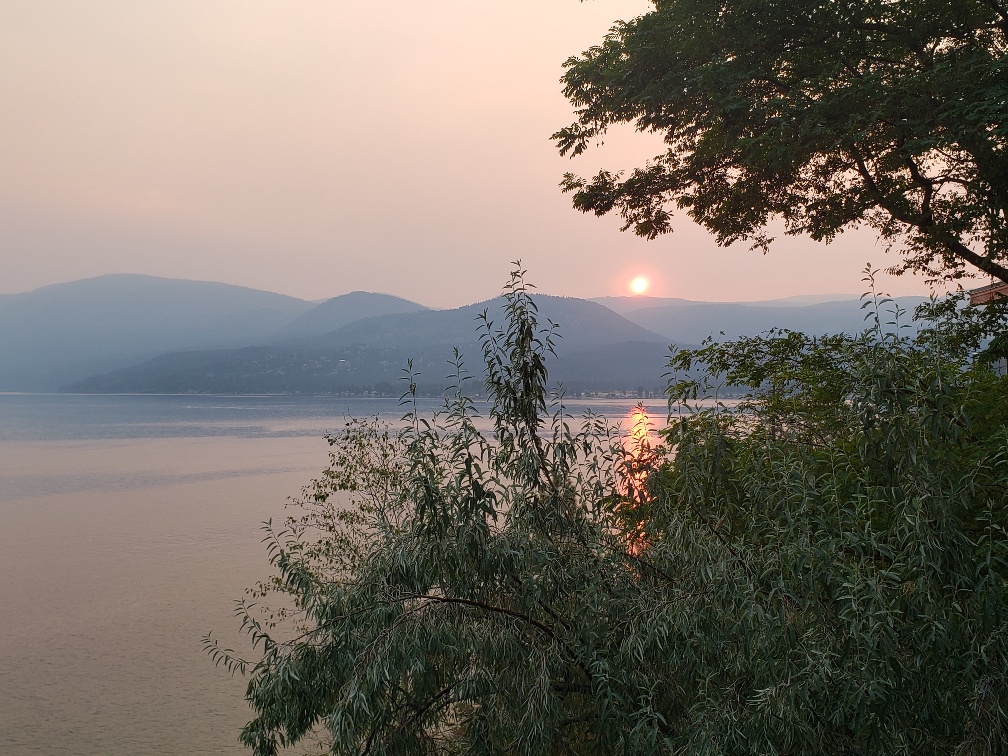Heavy smoke has sunk into Southern B.C. and it’s expected to stay for the next 48 hours at least.

“While local fires are contributing, the majority is from large fires burning in western Washington, Oregon, and the south coast of B.C. This smoke will potentially continue through Monday with the atmospheric conditions primed for Monday to be as smoky, if not smokier,” BC Wildfire said in a statement Sunday night.
“Actual levels will depend not only on atmospheric conditions, but also on smoke output from the fires south of the border which can be difficult to predict.”
If fires worsen, so too will smoke levels.
A site called IQ Air rated Vancouver as No. 1 on a list of worst air quality in the world Sunday. On Monday though, it was 10th.
Kelowna wasn’t rated due to its size, but the site indicated that the current air quality index for the Okanagan city is 160, which means Kelowna air is “14.5 times the (World Health Organization) annual air quality guidance value” and, notably, unhealthy. With an AQI of 160, Kelowna would slot in just behind Dubai, UAE, for the worst air quality in the world. Dubai’s current rating is 177. Number two on the list currently is Beijing, China, with an AQI of 156.
The B.C. Air Quality Index page had a slightly different take on conditions. It indicated that in the Central Okanagan air quality is currently a level five, and it’s expected to reach a level six by Tuesday night. The North and South Okanagan are dealing with similar conditions, though prognostications on what’s to come vary for each region.
None, however, are expected to be smoke free in the days ahead.

The air quality ratings are considered moderate but also come with a potential for people without health risks to experience coughing or a sore throat. People with health issues are advised to consider reducing or rescheduling strenuous outdoor activities.
Environment Canada said areas in central and southern B.C. may experience variable smoke conditions Monday. Areas at higher elevations may also have higher smoke impacts.
The national weather agency also offered some tips for how to stay safe in the smog.
“In general, wearing a mask is not the best way to protect your health during a smoke event. In fact, masks may lead to a false sense of security, which may encourage increased physical activity and time spent outdoors, meaning increased exposure to smoke. They can also make breathing more difficult,” weather officials said.
“Stay inside if you have breathing difficulties. Find an indoor place that’s cool and ventilated. Using an air conditioner that cools and filters air may help. If you open the windows you may let in more polluted air. If your home isn’t air-conditioned, consider going to a public place (library, shopping mall, recreation centre) that is air-conditioned.”
Wildfire smoke is a constantly-changing mixture of particles and gases which includes many chemicals that can harm your health.





Comments